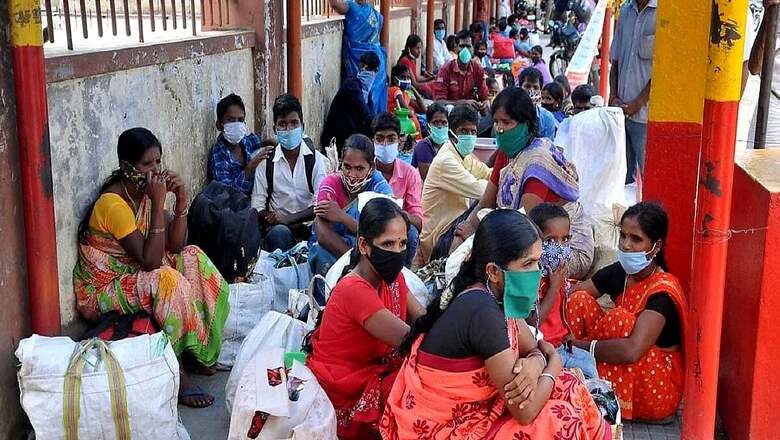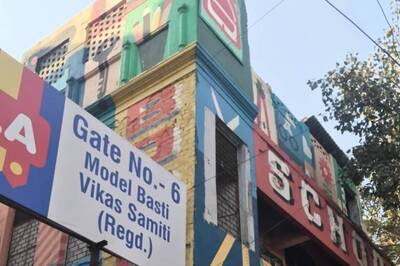
views
A clear indicator of the falling participation of women in the workforce came in the form of a report published this week in The Indian Express, according to which the rate of participation of women under the National Rural Employment Guarantee Scheme (NREGS) is at an eight-year low.
In terms of person-days, the participation of women in NRGES is the lowest since 2013-14, from when the number of person-days of women were seen to be steadily increasing. The latest data is significant because it proves what many labour experts and those working on gender-based issues have been saying all along – that Covid-19 is pushing women out of the formal and informal economies, reversing the progress made by them over the past few decades.
A comprehensive survey-based report released by the non-governmental organisation ActionAid this month showed the extent to which women have withdrawn from various informal industries and sectors that have traditionally been dominated by them. The report listed five sectors – domestic work, weeding work, agricultural labour, waste work and beedi making – which had seen drastic reduction in the number of female workers.
The survey found 85 per cent of the domestic workers had lost their jobs during Covid-19, nearly 90 per cent of female agricultural labourers reported losing their jobs, 85 per cent of weeding workers had no work, 69 per cent of waste workers reported not working at all during the pandemic, and 60 per cent of women employed in the beedi-rolling trade were out of work.
Overwhelming proportions of women in all segments reported having to dip into their savings to sustain their families and having to borrow money to survive, while getting minimal state support. A mix of factors – local shutdowns, lack of protective gear, fear of police action and threat of contracting the disease – meant that men replaced women in many of these segments.
Rahul Suresh Sapkal, an assistant professor at Centre for Labour Studies, School of Management and Labour Studies, TISS, who has been part of ActionAid’s earlier labour reports, said that it wasn’t as if the right of women to work had officially been abrogated.
“But what’s happened because of lockdowns and migration of labour to their home states is that now they’re not being allowed to return for work, or are not feeling the return journey quite safe. Slowly we’re seeing men replace women’s jobs to a great extent in the informal economy. In other cases, many sectors that were dominated by women have still not opened,” Sapkal said. He gave the example of schools where women are employed primarily as caregivers, which haven’t opened for the past many months.
“Employment opportunities in the workplaces have also gone down while at the same time safe travelling options aren’t available to them. So, among the migrant labourers who are returning, we are seeing an overwhelming proportion of men,” Sapkal said.
He added that workplaces, including construction sites, having placed the condition of labourers having to mandatorily undergo 14-day quarantine at their own expense, is also a factor that’s seeing a gradual decline in female participation. “Since labourers have to undergo the quarantine at their own expense, they are cramming into small spaces, taking huge risks to avoid paying exorbitant rents, which is a risk that women migrant labourers cannot take,” Sapkal added.
Talking about the state of female workers, the ActionAid report states, “Since their enrolment in welfare schemes is so low, women are unlikely to be able to support and sustain their households, unless the government makes a special effort to include them in relief packages and welfare schemes. Unimaginative and status quoist approaches will continue sidelining them.”
The report gives the instance of the PM Kisan scheme, the first instalment of which was, the report says, “front-loaded and transferred to the farmers enrolled under the relief package. But the scheme is only applicable to small and marginal farmers who own up to two hectares of land. Most women farmers do not own land and work as agricultural labourers or tenant farmers and are therefore, outside the remit of the scheme.”




















Comments
0 comment